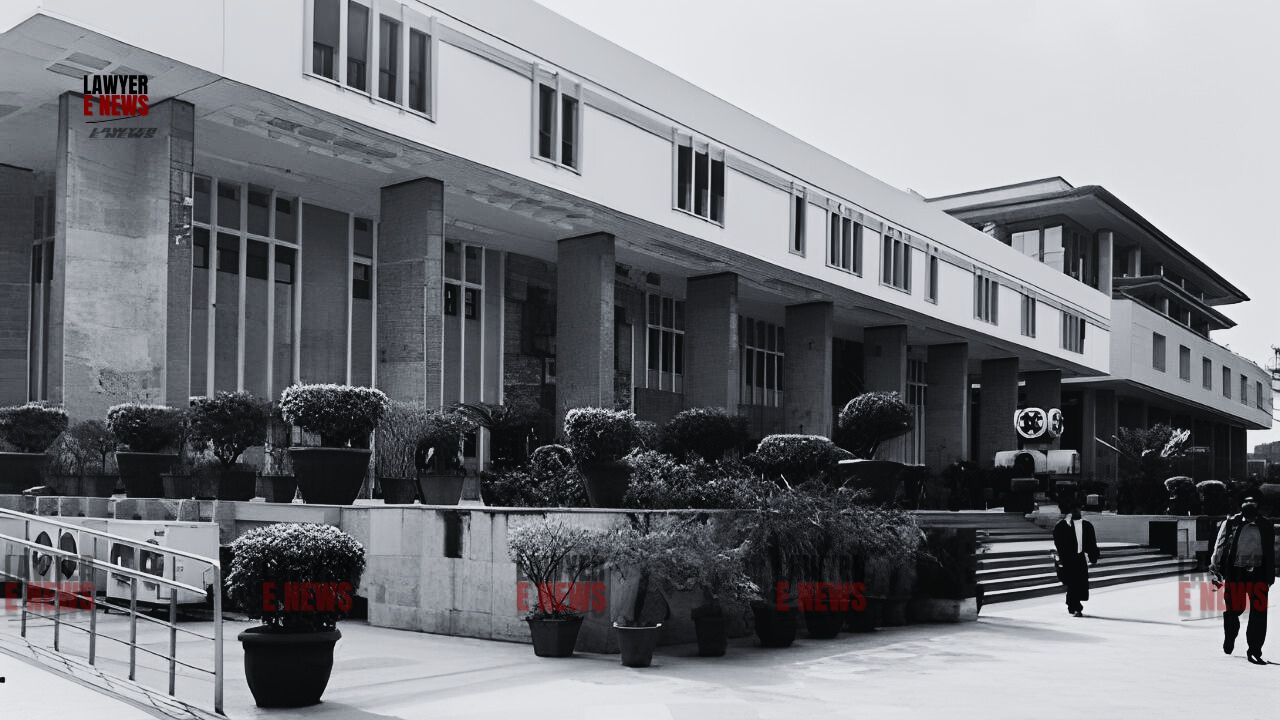-
by Admin
19 February 2026 3:14 PM



“It would be unreasonable to expect the candidates to look for any answer beyond what is provided in the passage itself” – Delhi High Court, comprising Chief Justice Devendra Kumar Upadhyaya and Justice Tushar Rao Gedela, delivered a significant judgment in a batch of writ petitions challenging the final answer key and ₹1,000 per question objection fee in the CLAT PG 2024–25 examination. The Court ruled in favour of partial judicial intervention, holding that two questions were wrongly evaluated, and directed the Consortium of National Law Universities to revise the scores accordingly. Though the Court did not quash the high objection fee for this year, it termed it “excessive” and urged reconsideration for future exams.
The ruling came in three connected writ petitions – W.P.(C) 2364/2025, W.P.(C) 2558/2025, and W.P.(C) 2560/2025 – filed by Anam Khan, Nitika, and Ayush Agrawal, who had challenged the correctness of four questions, the methodology of evaluation, and the high fee imposed for objecting to provisional answers.
“Option B Is Incorrect, and Option C Is the Correct Answer” – Court Corrects Error in Bangalore Water Supply-Based Question
One of the most contested questions (Question No. 21) related to the definition of “industry” under the Industrial Disputes Act, 1947, with reference to the Supreme Court’s decision in Bangalore Water Supply and Sewerage Board v. A. Rajappa, (1978) 2 SCC 213.
The Consortium had accepted Option B, citing the dominant function test. However, the Court noted that the passage was not an actual extract from the judgment, but a commentary, and stated:
“It is not disputed that the candidates... were not previously provided with any list of judgments... Thus, we are of the considered opinion that the answer in option ‘B’ is incorrect and option ‘C’ is the correct answer.”
The Court observed that the passage clearly referred to the nature of activity and the relationship between employer and employee, and made no mention of the "dominant function" test. It further criticized the Subject Expert Committee, stating it had “misdirected itself” by relying on material outside the passage.
“Clearly, It Is Salmond, Not Roscoe Pound” – Court Sets Right Jurisprudence-Based Question
In Question No. 98, the Consortium credited Roscoe Pound with the statement: “Right is an interest which is to be recognised, protected and enforced by law.” However, the petitioners cited Bombay High Court and Supreme Court rulings attributing this statement to Salmond.
The Court agreed: “Plainly, we do not see how the Consortium can take a stand that it is Roscoe Pound and not Salmond... Clearly, it is option (b), i.e., Salmond... The Consortium shall award marks to the candidates accordingly.”
The Court relied on Major General Shanta Shamsher Jung Bahadur Rana v. Kamani Bros. (P) Ltd., 1958 SCC OnLine Bom 63 and Mr. ‘X’ v. Hospital ‘Z’, (1998) 8 SCC 296, both of which directly quoted Salmond as the source of the principle in dispute.
“Excessive, Disproportionate, and Arbitrary” – High Court Criticises ₹1,000 Fee Per Objection, Urges Reform
While the petitioners sought to quash the ₹1,000 per question fee for raising objections to the provisional answer key, the Court stopped short of invalidating it retrospectively for the current year. However, it agreed with the petitioners' argument that the fee was “exorbitant”, especially when compared with national-level exams like JEE, NEET, and UGC-NET, where the typical fee ranges from ₹100 to ₹200.
The Court stated: “While comparing the fee charged... with that charged by the Consortium, [it] appears to be excessive and disproportionate... The Consortium should take heed... and avoid such excessive fee in the next examinations.”
The Court acknowledged the Consortium’s defence that the high fee acted as a deterrent against frivolous objections, often filed by coaching centres. However, it concluded that such a fee must strike a “fine balance”.
It recommended that the Consortium seek guidance from the Justice G. Raghuram Committee before finalizing the fee structure for future examinations.
Court Partly Upholds Evaluation for Two Other Questions – No Relief Granted
Regarding Question Nos. 56 and 57, the Court made the following rulings:
Question 56: Already deleted by the Consortium due to discrepancies between booklet versions. The Court endorsed its exclusion.
Question 57: Based on Mohit Minerals (P) Ltd. v. Union of India, (2022) 10 SCC 700. The Court upheld Option A as correct, agreeing with the Consortium that the Reason adequately explained the Assertion, despite the passage being a secondary source and not a judgment extract.
“Consortium Discharges a Public Function” – Maintainability of Petition Under Article 226 Upheld
The Consortium argued that as a non-statutory body, it was outside the purview of writ jurisdiction. The Court rejected this, observing that:
“The Consortium, though a private body, performs a public function in conducting national law entrance exams and is therefore subject to judicial review under Article 226.”
The Court reiterated the principle from Bangalore Water Supply & Sewerage Board v. A. Rajappa, (1978) 2 SCC 213 and Mohit Minerals to underline that where public duties are involved, judicial review cannot be ousted.
“Petitions Partly Allowed – Consortium to Revise Results Without Delay”
Summing up, the Court directed the Consortium to:
“Revise marks for Questions 21 and 98... maintain deletion of Question 56... and award marks for Question 57 as per existing key.”
The Court did not quash the ₹1,000 fee for this year but advised reconsideration going forward:
“It may be advisable for the Consortium to place this issue before the committee headed by Justice G. Raghuram (Retd.) for his valuable opinion.”
The writ petitions were disposed of without costs, and the Consortium was asked to comply forthwith and declare results with expedition.
Date of Decision: 6 June 2025
